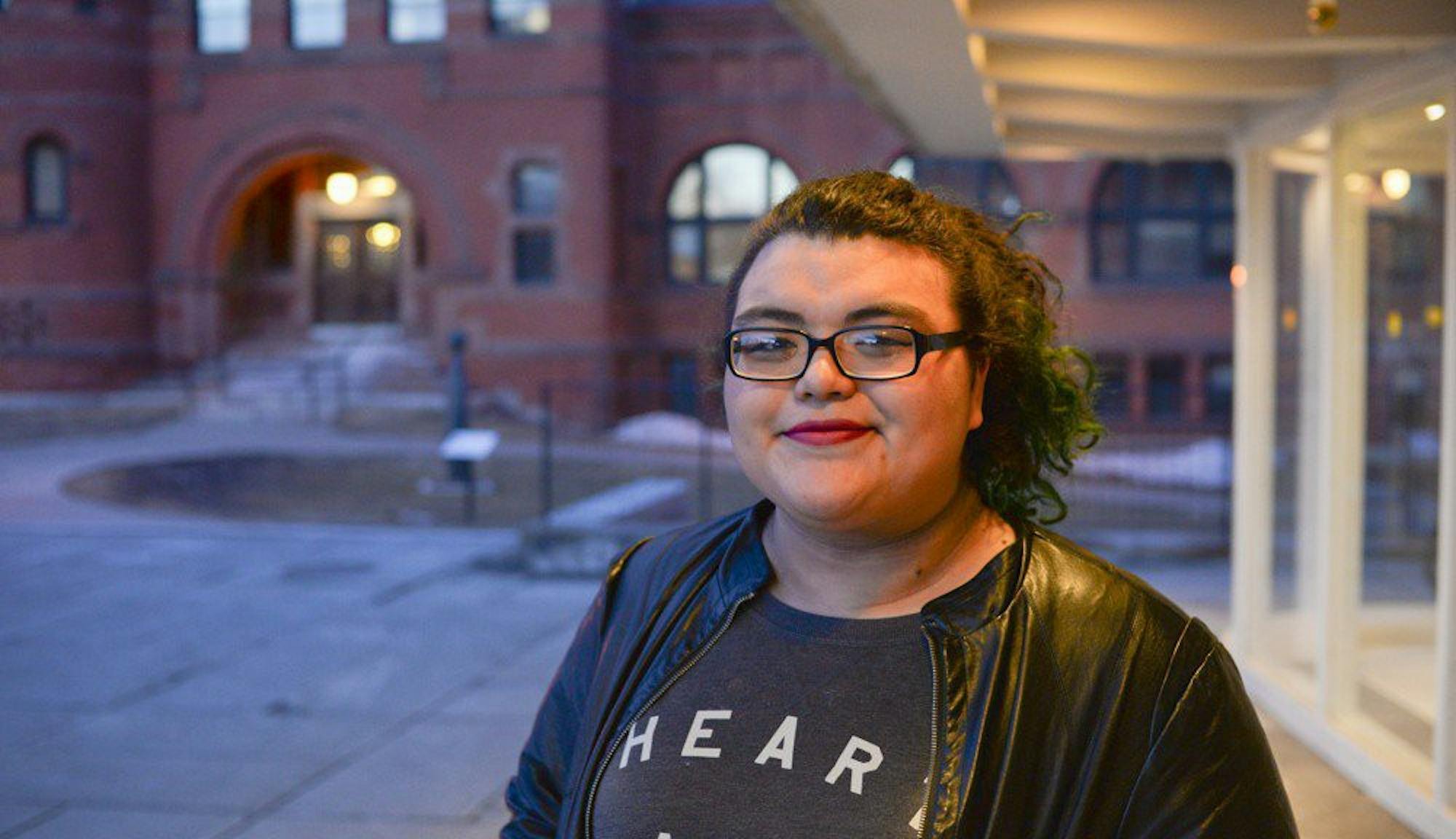While Charli Fool Bear-Vetter ’15 is known for her powerful singing voice as a member of the Rockapellas and as a 2015 Dartmouth Idol runner-up, she credits playwriting as the medium that helped her discover her literary voice. Fool Bear-Vetter, a theater major, was named first runner-up on March 22 for her play “The Crickets Ate the Moon” in the inaugural Yale Indigenous Performing Arts Program playwriting contest. Yale senior Reed Adair Bobroff placed first with his play “A Fraction of Love.”
Mary Kathryn Nagle, a lawyer, playwright and YIPAP executive director said she created the program last summer, with the goal of providing opportunities for Yale’s Native performers while exposing the university to authentic Native performances. Nagle said similar contests geared toward playwrights who have already had a certain degree of success inspired the conception of the content as an entry point for young playwrights.
“For the next generation of Native playwrights, there’s nothing out there for them to enter the world and have a chance to workshop and develop their plays,” she said. “We wanted to create something that would be for younger and emerging native playwrights.”
Written this past February, “The Crickets Ate the Moon” is a play about a young Native woman named Lena who discovers her love of theater and deals with the loss of her younger brother while struggling with mental health problems. The plot revolves around a dinner that Lena and her family are planning to honor her brother. Simultaneously, Lena interacts with an androgynous character known simply as The Friend, who serves as a manifestation of her mental health issues because only Lena can see The Friend.
A story Fool Bear-Vetter’s grandfather told her inspired the play. In the story, two people committed suicide in the same house on a reservation, and a third person attempts to do the same. A spirit-like being called to him, took his hand and tells him to commit suicide. A family member then stops him from committing suicide.
“That [story] really inspired me to think about how mental illness can take hold of anyone in any position in their lives,” Fool Bear-Vetter said.
Other issues Fool Bear-Vetter explores in her play include coping with grief, surviving sexual assault and dealing with the loneliness of being an oldest sibling. Fool Bear-Vetter considered those issues while developing Lena’s character.
“I thought what are the things I know that happen to Native women that people don’t talk about or that eat at them,” Fool Bear-Vetter said. “I tried to make [the issues] real and put them into a person who is hopefully relatable and that lots of women, Native or not, can see themselves in.”
Nagle said Fool Bear-Vetter was able to write about the issues facing Native people in a touching and personal way.
“I think [Fool Bear-Vetter] has written an important story that a lot of people and a lot of different tribal communities will really relate to,” Nagle said.
During her writing process, Fool Bear-Vetter looked for ways to dramatize the story her grandfather told her while sending a hopeful message and erasing mental health stigmas.
“She’s fearless as far as how she allows her characters to play out and the story to play out,” theater professor Joseph Sutton said. “[Her plays] have a fearlessness about them which I don’t always encounter with student work.”
Fool Bear-Vetter said she chose to make a Native woman the protagonist because of her experiences as a Yanktonai woman. This decision led to some difficulty in keeping the play not too personal, especially because she dealt with many of the characters’ issues.
“When you write something autobiographical you can be blinded to what really happened because you are only looking at your perspective,” she said.
Time proved another complicating factor as Fool Bear-Vetter did not find out about the contest until a few days before the Feb. 15 deadline. Classmate and friend Taylor Payer ’15, who works with Native artists in Minneapolis, sent her an email with the contest information and a list of resources to aid her playwriting.
Nagle said directors, playwrights, actors and professors eminent in the Native theater community judged the contest. The group judges Bill Yellow Robe Jr., an Assiniboine playwright, actors Jason Grasl and Jake Hart and theater director Sarah d’Angelo.
“The Crickets Ate the Moon” will be performed on Saturday, April 16 at Yale’s Jonathan Edwards College Theater as a staged reading following a workshop about the development of her play. Madeline Sayet, a Mohegan director and writer, will direct the reading.
Correction appended (April 5, 2016):
The original version of this article misspelled the name of the protagonist of "The Crickets Ate the Moon." Her name is Lena not Lina as originally reported. In addition, the article incorrectly described the story told by Charli Fool Bear-Vetter ’15's grandfather. The article has been updated to reflect these corrections.




